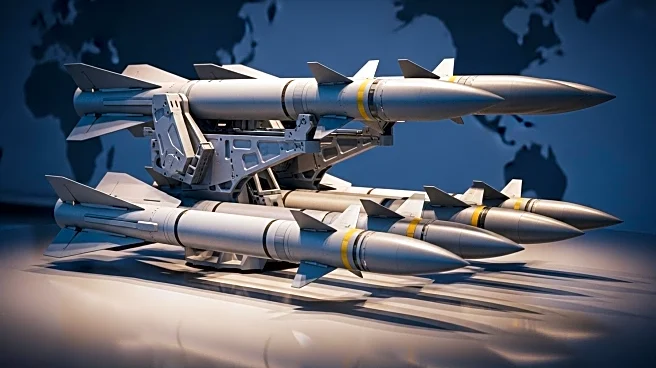What's Happening?
The US Department of State has approved the sale of up to 400 RTX AIM-120D-3 Advanced Medium-Range Air-to-Air Missiles (AMRAAM) to Germany. This sale, valued at approximately $1.23 billion, includes related equipment, spares, training, and support. The Defense Security Cooperation Agency (DSCA) announced that the sale aims to enhance Germany's air-to-air capabilities for its F-35 program and support NATO planning, training, and operational requirements. This approval follows previous clearances for AMRAAM missiles in July 2023 and July 2022, which were part of a broader weapons package for Germany's Lockheed Martin F-35A Lightning II acquisition. The Luftwaffe already uses earlier versions of the AMRAAM on its Eurofighter aircraft. The latest approval requires US Congress clearance before contracts are issued and deliveries commence.
Why It's Important?
The sale of AMRAAM missiles to Germany is significant for several reasons. It strengthens Germany's defense capabilities, particularly in air-to-air combat, which is crucial for maintaining security in the region. The deal also reinforces the strategic military partnership between the US and Germany, aligning with NATO's collective defense objectives. For the US defense industry, this sale represents a substantial economic opportunity, supporting jobs and technological advancements. Additionally, the transaction underscores the importance of international military cooperation in addressing shared security challenges.
What's Next?
The next step involves obtaining clearance from the US Congress, which is necessary before contracts can be finalized and deliveries can begin. This process may involve discussions and negotiations to ensure compliance with US foreign policy and defense priorities. Once approved, the delivery of missiles and related equipment will be scheduled, enhancing Germany's military capabilities. Stakeholders, including political leaders and defense contractors, will closely monitor the progress of this sale, as it impacts international relations and defense strategies.









